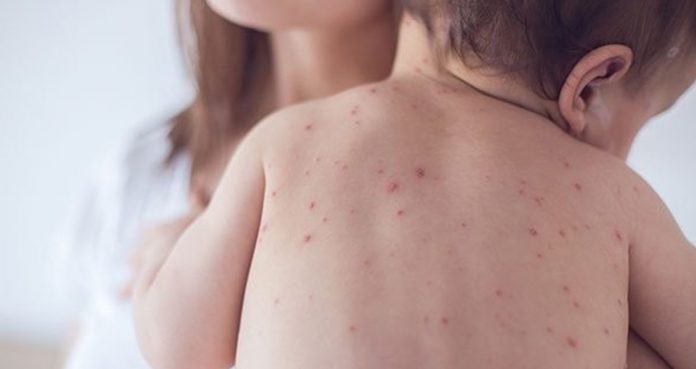Amid measles outbreaks in 11 states, including Texas, one case of measles has been confirmed in San Antonio, said Elizabeth Allen, a spokeswoman of University Health System (UHS) late Tuesday.
The case was diagnosed through a laboratory test by UHS last week in an outpatient. The information of the case has been turned over to the Metropolitan Health District.
The patient received retreatment as an outpatient and had already left when the measles was confirmed, said Elizabeth.
The Texas Department of State Health Services (DSGS) has been reporting this measles case as the 10th case in the state this year. DSHS said the patient had visited Guadalupe County from the Philippines, where a measles outbreak is going on.
Dr. Bryan Alsip, chief medical officer for UHS, said, “Thanks to our experienced and high-quality physicians who performed laboratory tests based upon a thorough history, we were able to diagnose a case of measles that might have otherwise gone undiagnosed.”
He added, “San Antonio Metropolitan Health District is encouraging all health systems and clinical providers to do the same, given the extent of the epidemic and the concern over additional cases that may be in our community.”
Nationwide, 206 measles cases were confirmed from January 1 to February 28, according to the CDC. The most severe measles outbreak has been in Washington where 69 people have been sickened until March 1.
Measles is caused by an airborne virus, which lives in the nose and throat mucus of an infected person. It can be spread through sneezing and coughing. The symptoms of measles include fever, runny nose, cough, red/watery eyes, sore throat, and a skin rash. Measles can be prevented through vaccination. The CDC recommends that children should get two MMR (measles-mumps-rubella) shots in order to be fully protected from measles. The first dose is administered between 12 and 15 months of age while the second dose between 4 and 6 years of age.























